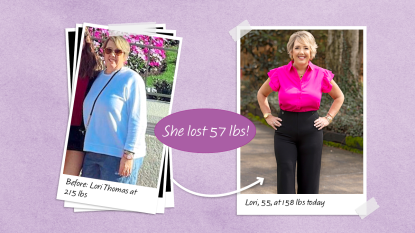Could Drinking Coffee Benefit Your Heart Health? A New Study Says Yes
Your daily cup of java plays a role in healthy heart function.

A healthy heart can help keep strokes and chronic diseases at bay. These benefits are typically achieved through a balanced diet and regular exercise. However, a new study proves that drinking coffee also works to protect heart health (good news for you caffeine addicts!). The research revealed that drinking two to three cups of java a day is associated with a reduced risk of heart disease and heart failure.
Exciting Research
This research consists of three studies presented at the 2022 American College of Cardiology’s Annual Scientific Session and Expo. Here’s an overview of each study led by Peter M. Kistler, MD.
The First Study
Dr. Kistler and his research team looked at the connections between coffee intake and incident arrhythmia (irregular heartbeat), heart disease, and mortality. Using data from the UK Biobank, 382,535 people (half of which are women) with an average age of 57 were included in this study.
Participants weren’t diagnosed with heart disease at the beginning of the study. Researchers followed up after 10 years to see if drinking coffee impacted the participants’ development of heart disease or risk.
The results? Sipping two to three cups daily lowered their risk of heart disease, arrhythmia, heart failure, and death by up to 15 percent. Researchers also found that stroke risk was the lowest amongst people who drank at least one cup a day.
The Second Study
The next study involved 34,279 people who had some form of heart disease. The authors followed the same data collecting procedures as the first study.
Findings showed that two to three cups of coffee each day was tied to a lower chance of death as compared to not drinking coffee at all. Additionally, any level of coffee intake wasn’t found to have increased arrhythmia risk.
“Clinicians generally have some apprehension about people with known cardiovascular disease or arrhythmias continuing to drink coffee, so they often err on the side of caution and advise them to stop drinking it altogether due to fears that it may trigger dangerous heart rhythms,” Dr. Kistler explained in a news release. “But our study shows that regular coffee intake is safe and could be part of a healthy diet for people with heart disease.”
The Third Study
The goal of this study was seeing the effect that sipping instant, ground, caffeinated or decaf had on heart disease risk. Here are the types of coffee drinkers included in the study, which utilized the UK Biobank’s data:
- 73,027 ground coffee drinkers
- 167,399 instant coffee drinkers
- 57,615 decaf coffee drinkers
- 84,494 non coffee drinkers
Ultimately, two to three cups of ground or instant coffee was related to a decreased chance of heart failure, arrhythmias, and stroke. Also, lower rates of death were seen across all coffee types. Dr. Kistler noted that these results suggest that caffeinated coffee is more favorable than decaf for getting heart health benefits.
Limitations of This Research
These studies are promising, but they do have limitations. First, the authors were unable to account for the participants’ dietary factors that could impact heart disease risk.
Possible consumption of creamers, milk, or sugar in coffee also wasn’t measured. Moreover, participants self-reported their everyday coffee intake via a questionnaire — helping researchers determine the right amount to drink for heart health. This should be considered when interpreting the findings as it’s hard to verify the accuracy of each participant’s daily coffee intake.
What This Means for You
This research offers great news all around for coffee lovers. Coffee is loaded with bioactive compounds including cafestol and kahweol, which have been shown to reduce oxidative stress and inflammation. These benefits are key for avoiding heart failure.
But Dr. Kistler advises against upping your coffee intake if two to three cups gives you anxious or uncomfortable feelings. (Always speak with your doctor before making any dietary changes.)
“Coffee drinkers should feel reassured that they can continue to enjoy coffee even if they have heart disease,” he said. “Coffee is the most common cognitive enhancer — it wakes you up, makes you [feel] mentally sharper and it’s a very important component of many people’s daily lives.”













